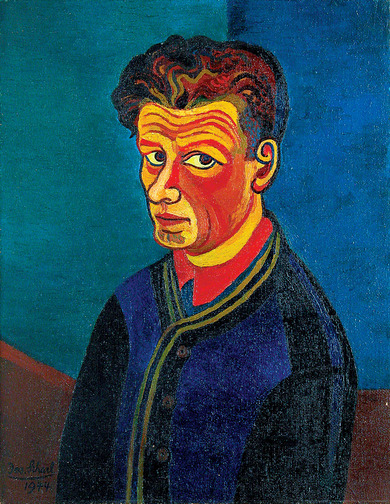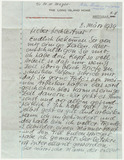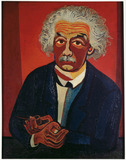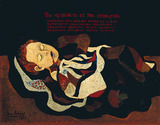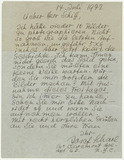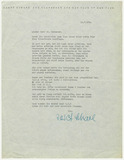Josef Scharl
Josef Scharl
Wie gesagt, die Situation ist reichlich ungemütlich geworden. Und ich will doch arbeiten können! So habe ich denn den Entschluß gefaßt, von hier fortzugehen.
[As I said, the situation has become extremely uncomfortable. And I want to work! So I have made the decision to leave this place. (ed. trans.)]
Josef Scharl to Elisabeth and Wilhelm Mayer, 23 April 1938
| Born | on 9 December 1896 in Munich , Germany |
|---|---|
| Died | on 6 December 1954 in New York, United States of America (USA) |
| Exile | United States of America |
| Profession | Painter, Graphic designer |
In 1938, the painter and graphic artist Josef Scharl, who painted in the style of the New Objectivity, could only paint in secret in Germany. In the eyes of the Nazis his paintings were “degenerate art”. Scharl’s studio in Munich was frequently subject to inspections. Because of this atmosphere of persecution, Scharl decided to emigrate to New York at the end of 1938.
There he met a number of friends and acquaintances who had already emigrated and with whom he visited museums or went travelling around the country. He incorporated impressions of the country into his art. Sales were sluggish however. He was troubled by concerns about finances, persistent health problems, and the estrangement from his wife, who had stayed behind with their son in Munich.
Scharl found his first real success in exile in the years 1944 and 1945. The artist illustrated the fairy tales of the Brothers Grimm as well as Adalbert Stifter’s Bergkristall for editions published by Pantheon Books, the head of which was German emigrant Kurt Wolff. But the recognition only lasted a short while. When his gallerist Karl Nierendorf died soon after he had starting writing the first monograph on Scharl in 1945, problems once again moved into his field of vision. A seven-part requiem cycle as an engagement with Mozart's last work was an impressive work from those years, during which Scharl thought about returning to Germany. He had the impression however that his homeland no longer respected or wanted him, so he kept his distance and remained in the United States, where he became a citizen.
Selected works:
Blinder Bettler im Café (1927)
Gefallener Soldat (1932)
The massacre of the innocence (1942)
Brewing Thunderstorm (1943)
Further reading:
Greither, Aloys / Zweite, Armin (Hg.): Josef Scharl 1896 – 1954. München: Prestel 1982
Firmenich, Andrea (Hg.): Josef Scharl. Monographie und Werkverzeichnis. Köln: Wienand 1999

